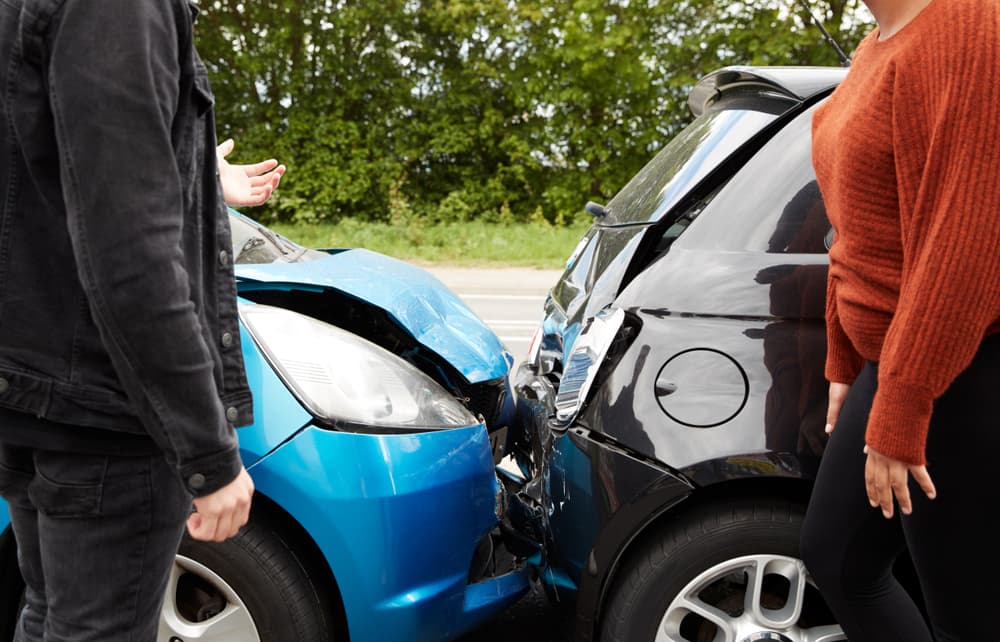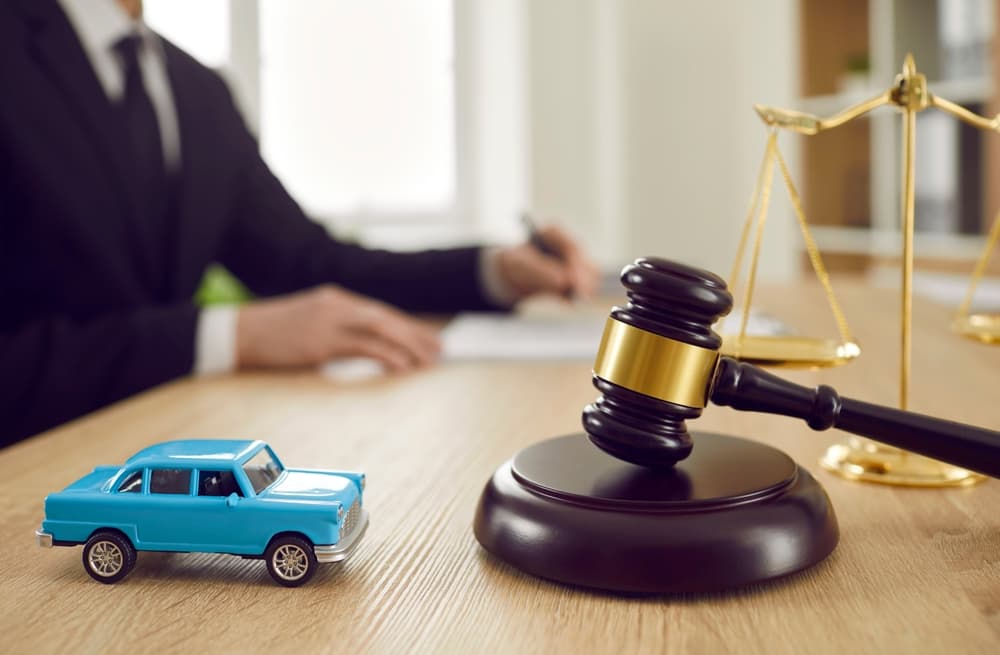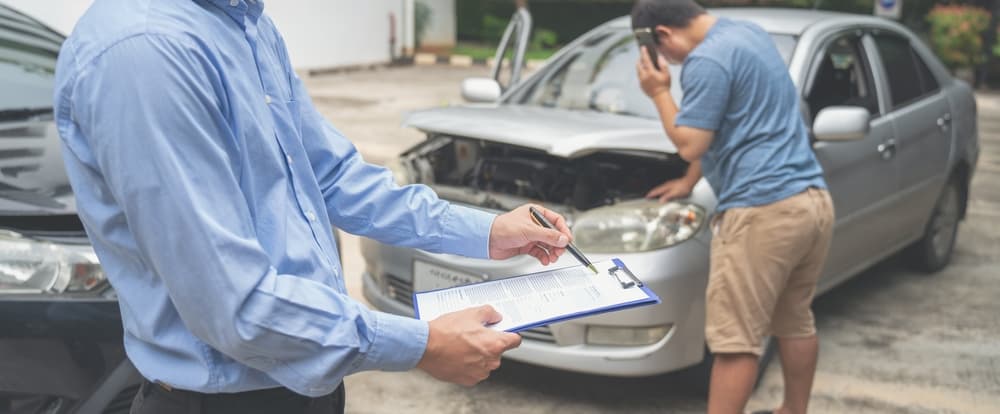Whether it's a minor fender bender or a significant collision, the aftermath of a car accident can be overwhelming. Medical bills, property damage, and lost income can quickly add up, but there are steps you can take to ensure you get paid for your losses. One of the first and most effective steps you can take to ensure you get paid after suffering injuries in a car accident is to contact a skilled Fairfax car accident attorney.
Common Causes in Car Accident Claims
Car accidents can happen for various reasons, and determining liability is essential in seeking compensation. Here are some common causes of car accident claims:
Distracted Driving

Distracted driving, such as texting, talking on the phone, eating, or using in-car technologies, is a significant cause of car accidents. When a driver's attention is diverted from the road, it increases the risk of a collision.
Drunk Driving
Driving under the influence of drugs or alcohol is a serious offense and can lead to severe accidents. Impaired drivers have reduced reaction times and impaired judgment, putting themselves and others at risk.
Speeding
Excessive speeding is another prevalent cause of car accidents. When drivers exceed the speed limit, they have less control over their vehicles and require more time to stop, increasing the likelihood of a collision.
Reckless Driving
Reckless driving includes actions such as tailgating, swerving in and out of traffic, and disregarding traffic signals. These behaviors put everyone on the road in danger and often result in serious accidents.
Poor Weather Conditions
Adverse weather conditions like rain, snow, or fog can make roads slippery and decrease visibility. Drivers who fail to adjust their driving to these conditions can cause accidents.
Types of Car Accidents
Car accidents can occur in various ways, and understanding the different types can be beneficial when seeking compensation. Some common types of car accidents include:
- Rear-End Collisions: These accidents occur when one vehicle crashes into the back of another, often due to distracted driving or sudden stops.
- T-Bone Collisions: Also known as side-impact collisions, these accidents happen when the front of one vehicle strikes the side of another, typically at intersections.
- Head-On Collisions: These accidents occur when two vehicles collide directly with each other, often resulting in severe injuries due to the impact force.
- Rollover Accidents: A rollover can happen when a vehicle flips onto its side or roof, often caused by high-speed collisions or sharp turns.
- Side-Swipe Accidents: When two vehicles traveling next to each other make contact, causing damage to the sides of the vehicles.
Identifying the type of accident you were involved in will help you understand the potential injuries and damages associated with it, enabling you to seek appropriate compensation.
Establishing Fault in Car Accidents

Establishing fault in a car accident is essential for determining who is liable for the damages and injuries caused. While each accident is unique, several factors can help establish fault:
- Police Report: Contacting the police after an accident is essential, as they will assess the scene, interview witnesses, and create an official police report. The report can provide valuable evidence of fault.
- Eyewitness Testimonies: Statements from individuals who witnessed the accident can be valuable in determining fault.
- Photo and Video Evidence: Taking pictures or recording videos of the accident scene, vehicle damage, and any visible injuries can provide concrete evidence of fault.
- Expert Witnesses: In some cases, expert witnesses, such as accident reconstruction specialists, can be hired to analyze the accident and provide professional opinions on the fault.
- Traffic Laws: Violations of traffic laws, such as running a red light or speeding, can help establish fault.
Car Accident Injuries
Car accidents can result in a wide range of injuries, from minor bruises and cuts to more serious and life-altering conditions. Here are some common car accident injuries:
- Whiplash: This common injury occurs when the head is suddenly jerked forward and backward, causing strain on the neck muscles and ligaments. Symptoms may include neck pain, stiffness, headaches, and dizziness.
- Broken Bones: The impact of a car accident can cause fractures and broken bones, particularly in the arms, legs, and ribs. These injuries may require surgery and extensive rehabilitation.
- Back Injuries: Car accidents can cause damage to the spinal cord, resulting in severe back pain, numbness, and even paralysis.
- Head and Brain Injuries: Traumatic brain injuries (TBI) can occur when the head suffers a violent blow or sudden jolt. These injuries can range from mild concussions to more severe brain damage.
- Internal Injuries: The force of a collision can cause internal injuries, such as internal bleeding, organ damage, or damage to blood vessels.
Be sure to seek medical attention immediately following a car accident, even if you feel fine initially. Some injuries, such as whiplash or internal injuries, may not show symptoms immediately but can worsen over time if left untreated. Additionally, seeking medical treatment will ensure you have documentation of your injuries, which is important when filing an insurance claim or pursuing a legal case.
Damages in Car Accidents
After a car accident, you may be entitled to various types of damages, depending on the circumstances of the accident and the extent of your injuries. Damages can be categorized into two main types: economic and non-economic damages.
Economic Damages
Economic damages refer to the tangible financial losses you suffered from the car accident. Some common examples include:
- Medical Expenses: This includes hospital bills, doctor visits, medications, surgeries, rehabilitation, and any other medical treatment required for your injuries.
- Property Damage: If your vehicle was damaged in the accident, you may be entitled to compensation for repairs or the fair market value of your car if it is deemed a total loss.
- Lost Income: If your injuries prevent you from working, you can claim compensation for your lost income and future loss of earning capacity.
- Other out-of-pocket expenses: These can include transportation to medical appointments, assistive devices, home modifications, and any other expenses directly related to your accident-related injuries.
Non-Economic Damages
Non-economic damages are less tangible but equally important in terms of the impact they have on your life. These damages may include:
- Pain and Suffering: Compensation for physical pain and emotional distress caused by the accident and resulting injuries.
- Emotional Distress: The psychological impact of a car accident, such as anxiety, depression, or post-traumatic stress disorder (PTSD).
- Loss of Enjoyment: If your injuries have resulted in a loss of quality of life or the inability to participate in activities you once enjoyed, you may be entitled to compensation for this loss.
- Loss of Consortium: If the accident has affected your ability to have a normal relationship with your spouse or significant other, you can pursue compensation for your loss of companionship and support.
Each car accident case is unique, and the specific damages you may be entitled to will depend on the circumstances of your accident and the extent of your injuries.
Why You Need a Skilled Car Accident Lawyer

Navigating the legal process after a car accident can be overwhelming, especially when you're dealing with injuries and the emotional aftermath of the accident. Hiring a skilled car accident lawyer can significantly increase your chances of getting the compensation you deserve. Here are some reasons why you need a car accident lawyer:
- Knowledge and Experience: Car accident lawyers know personal injury law and understand the legal issues of car accident cases. They will guide you through the process, ensuring all necessary documents are filed and deadlines are met.
- Investigation and Evidence Gathering: A car accident lawyer will thoroughly investigate your case, collect valuable evidence, and obtain witness statements to build a strong case on your behalf. They will also work with accident reconstruction experts, medical professionals, and other experts to strengthen your claim.
- Negotiation with Insurance Companies: Insurance companies are known for trying to settle claims for the lowest possible amount. A car accident lawyer will negotiate with the insurance company on your behalf, fighting for fair compensation for your injuries and damages.
- Litigation Representation: If a fair settlement cannot be reached through negotiation, a car accident lawyer will prepare your case for trial and represent you in court, ensuring your rights are protected.
- Peace of Mind: Hiring a car accident lawyer allows you to focus on your recovery while they handle the legal aspects of your case. They will handle all communication with insurance companies, opposing parties, and defense attorneys, relieving you of the stress and pressure of dealing with the legal process.
Guidelines to Get Paid After a Car Accident
When it comes to getting paid after a car accident, follow specific guidelines to protect your rights and maximize your compensation. Here are some steps you should take:
Hire a Skilled Car Accident Attorney
Hiring a skilled car accident attorney can make a significant difference in your case. When selecting an attorney, look for someone experienced in car accident cases, knowledgeable about local laws, and has a track record of successful outcomes. A reliable attorney will provide personalized attention, handle the paperwork, and advocate for your best interests.
File an Insurance Claim with Your Auto Insurance Provider
Promptly filing an insurance claim with your auto insurance provider is crucial. Contact your insurance company as soon as possible after the accident and provide them with all the necessary details. Be honest and accurate when describing the accident and your injuries. Remember that insurance adjusters are trained to minimize payouts, so be cautious when discussing your case and avoid making any statements that may harm your claim.
Follow Your Medical Treatment Plan
Seek medical attention as soon as possible after the accident, even if you believe your injuries are minor. Some injuries may not manifest immediately but can worsen over time. Follow your doctor's recommended treatment plan and attend all appointments.
Document all medical expenses, including doctor visits, hospital stays, medication costs, and necessary medical equipment. Keep a record of all the healthcare professionals you have seen and any additional treatments or therapies prescribed.
Keep Proof of Economic Losses
Car accidents can result in various economic losses, such as property damage, lost income, and transportation expenses. Keep detailed records of all these losses. This includes invoices, receipts, and pay stubs demonstrating the financial impact of the accident on your life.
Keep Proof of Non-Economic Loss
In addition to economic losses, car accidents can cause non-economic damages, such as pain and suffering, emotional distress, and loss of enjoyment of life. While these losses are not as tangible as economic damages, they are just as valid.
Keep a journal to document the physical and emotional pain you experience as a result of the accident. Note how your injuries have affected your daily life, relationships, and overall well-being. This information will be essential in quantifying your non-economic losses and seeking appropriate compensation.
The Process of Seeking Compensation After a Car Accident
The process of seeking compensation after a car accident can be lengthy and complex. Here's a general overview of what you can expect:

- Initial Consultation: Meet with a car accident attorney to discuss your case and determine if you have a viable claim. Most attorneys offer free, no-obligation consultations.
- Investigation: Your attorney will collect evidence, including accident reports, medical records, and witness statements, to build a strong case on your behalf. They may also consult with accident reconstruction experts if necessary.
- Demand Letter: Your attorney will draft a demand letter outlining your injuries, medical expenses, lost income, and other damages. This letter will be sent to the at-fault party's insurance company, stating your intent to seek compensation.
- Negotiations: Your attorney will negotiate with the insurance company to reach a fair settlement. If the insurance company refuses to offer a satisfactory amount, your attorney may advise filing a personal injury lawsuit.
- Litigation: If your case proceeds to litigation, your attorney will represent you in court and present your case to a judge and jury. They will advocate for your rights and seek the maximum compensation on your behalf.
- Settlement or Judgment: You will receive compensation if a settlement is reached or a judgment is awarded in your favor. Your attorney will ensure that all outstanding medical bills, legal fees, and other expenses are paid before disbursing the remaining amount to you.
Contact an Experienced Car Accident Attorney
If you were recently injured in a car accident, make it a priority to consult with an experienced Fairfax, VA personal injury attorney. Your attorney can ensure you take all the necessary steps to secure the compensation you deserve and get paid after suffering injuries and damages in a car accident.

